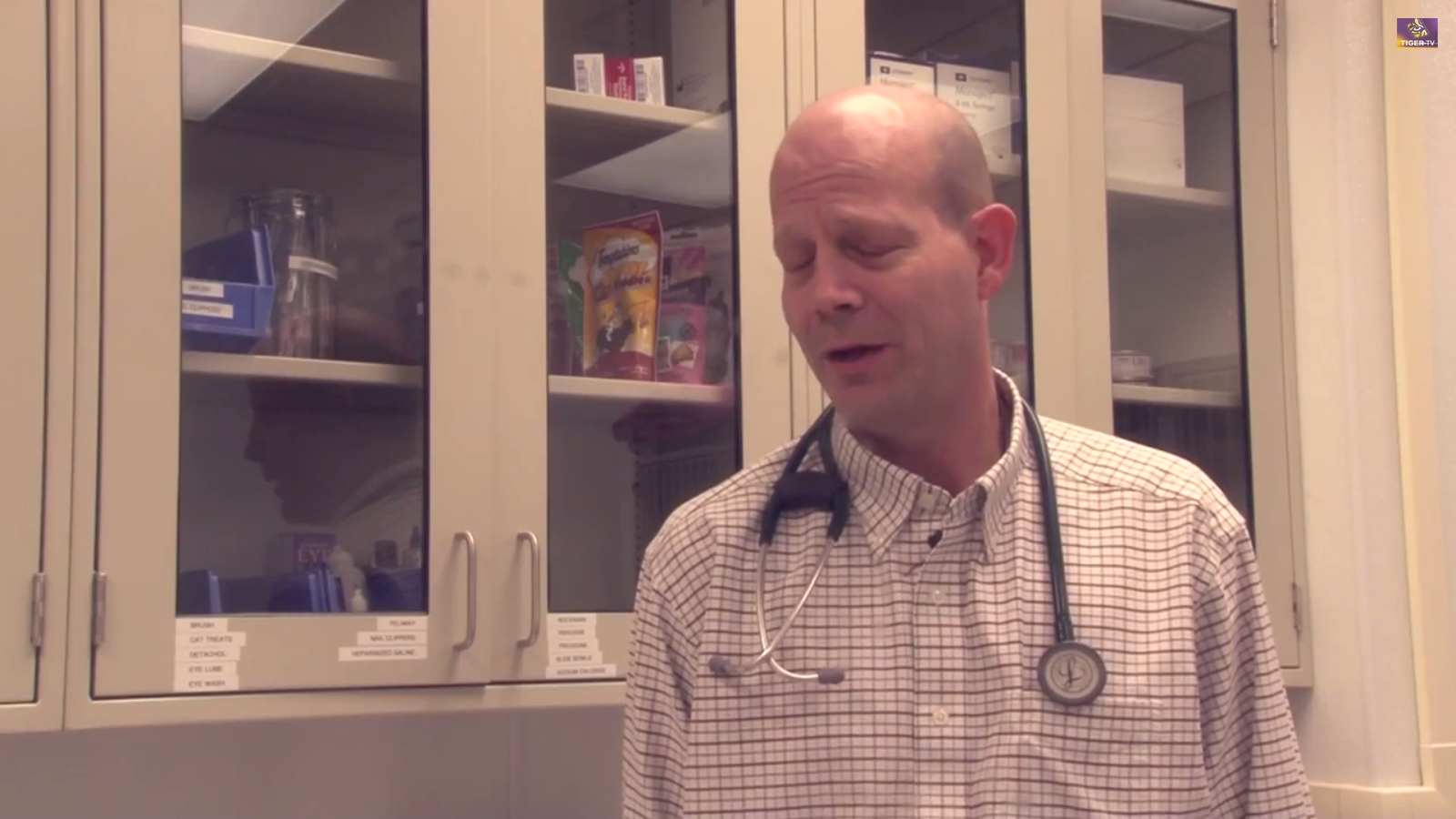After one Ebola patient’s dog was euthanized because of fear that the dog could spread the virus, people began to panic about the safety of their pets.
Our pets are important members of our families. Even here on the LSU campus, we have a school wide pet, Mike.
With the new concerns of Ebola spreading through animals, we need to understand whether our pets are safe.
Dr. Kirk Ryan, veterinarian in the Small Animal Clinic in the LSU School of Veterinary Medicine, explained that the majority of infections and viruses do not cross species.
“It’s not impossible for certain bacterial infections, fungal infections and even viruses to spread,” Dr. Ryan said. “But it’s just highly unlikely.”
The Dallas Presbyterian Hospital has been proactive in protecting the dog of the second Ebola victim, Nina Pham, in the United States. It is now being taken care of by Texas A&M veterinary researchers in a controlled environment and is doing well.
According to the CDC, only mammals such as human, bats, monkeys or apes can contract or spread Ebola.
“Common things like cold and flu viruses usually are very species specific,” Dr. Ryan said. “Obviously there are some exceptions like swine flu and bird flu, which have been known to cross several species’ lines, but it’s not something that we encounter on a regular basis.”
Although we are still unsure about whether or not Ebola effects our pets, it’s important that we keep ourselves and our animals safe.
Ebola: Are Our Pets in Danger?
October 16, 2014
Nina Pham, 26-year-old Ebola virus patient, and her dog, Bentley, who was fought for by Pham’s family and is now quarantined.
More to Discover





